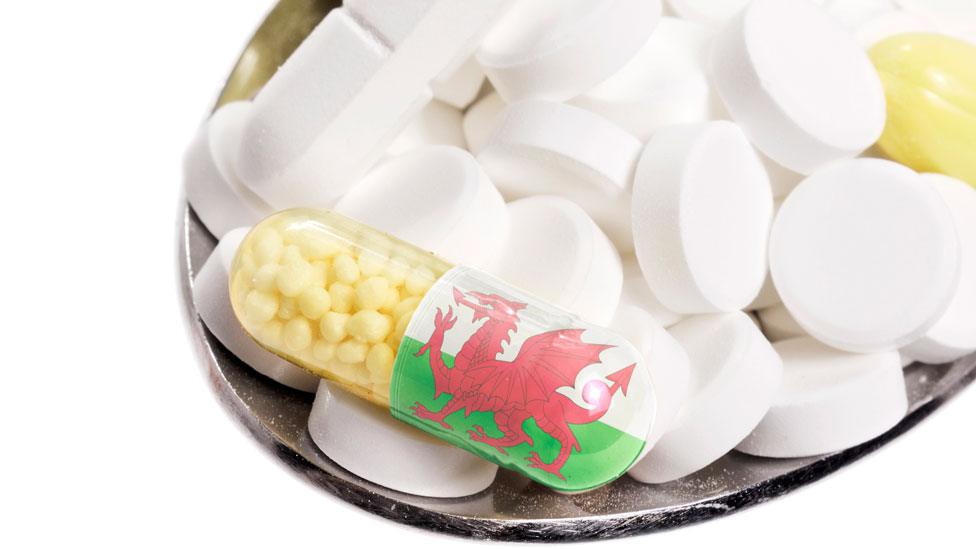Trump: Other nations extort drug-makers
- Published
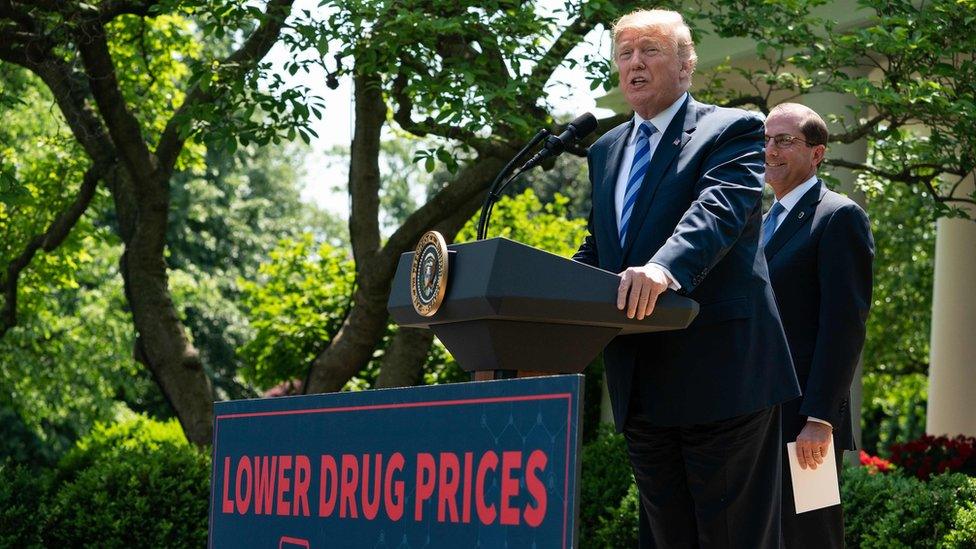
Donald Trump says he wants to eliminate the "middlemen" in America's pharmaceutical pricing system
US President Donald Trump has accused foreign governments of extorting "unreasonably low prices" from pharmaceutical firms.
Speaking in Washington on Friday, he said he had directed his top trade negotiator to make the issue a priority in trade talks.
"It is time to end the global freeloading once and for all," he said.
The president is under pressure to deliver on campaign promises to reduce the high costs of prescription drugs.
In his speech, the president pinned the problem in part on price controls in other countries that he said "extort unreasonably low prices" from drug-makers, forcing Americans to pay more to "subsidise the enormous costs of research and development".
"That is unacceptable," he said.
However, experts say foreign pricing is not a major influence on US costs and changing it will not help Americans.
Paul Ginsburg, a professor of health policy at USC and the director of the USC-Brookings Schaeffer Initiative for Health Policy, said firms set prices to maximise profits and already have ample incentives to innovate.
"The notion that if other countries pay more for drugs that US consumers will pay less, that's just not true," said
"If they are able to get other countries to pay more, I don't believe it will have any effect on prices in the United States," he added. "It will only raise drug company profits."
Shares of health care companies jumped after the president's speech.
Higher costs
Polls repeatedly find that reducing the high cost of prescription drugs is a priority for American voters.
The US spent $1,443 per capita on pharmaceutical costs in 2016, compared to a range of $466 to $939 in 10 other high income countries, including the UK, Australia, Canada and Japan, according to a study, external in the Journal of the American Medical Association.
The report said those costs were one of the primary drivers of overall US health spending, which was nearly twice as high as in the other countries.
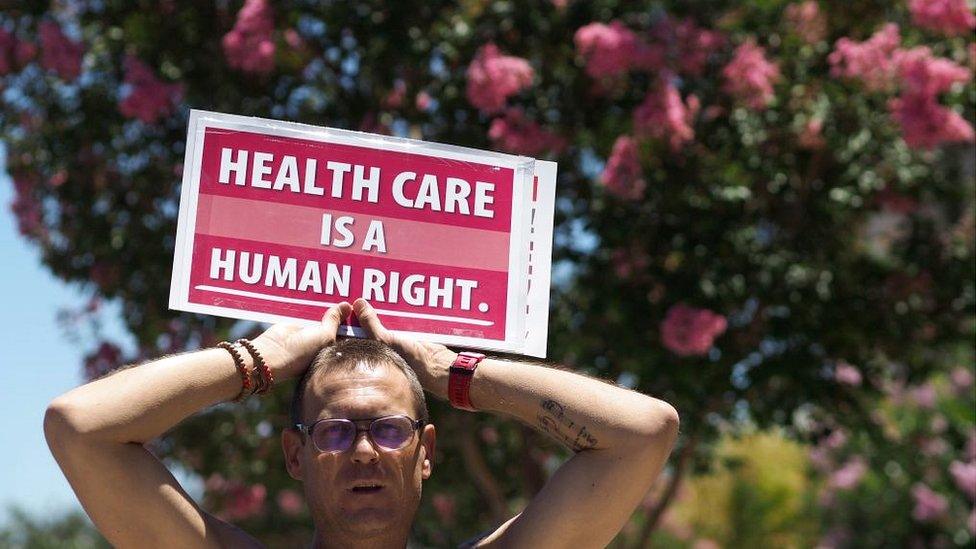
The rising cost of healthcare is concern for many in the US
President Donald Trump seized on the issue during his 2016 election campaign.
At the time, he said the government should negotiate drug prices for government health programmes, such as Medicare. He also voiced support for allowing people to buy medicines from countries where they cost less, such as Canada.
Neither of those proposals was mentioned in Friday's speech.
Senator Chuck Schumer, Democrat from New York, said the president's blueprint offered "little more than window dressing".
"The idea that asking Germany to charge their citizens more for drugs will help Americans is a cop-out and the height of absurdity that nobody believes," he said.
Details of the plan
US drug prices are set by companies and subsequently renegotiated with insurers, suppliers and hospitals through rebates, discounts and other measures.
President Trump said he wants to eliminate "the middlemen" in that system.
The White House blueprint calls for requiring disclosure of out-of-pocket costs and for ending rules that limit what pharmacists can share about costs, among other measures.
President Trump also said he is considering requiring firms to identify drug costs in advertisements.
The plans also emphasises increasing competition among drug manufacturers, by speeding up approvals for generic drugs and cracking down on the "gaming" of intellectual property patents.
Some of those measures are already under way. US Health and Human Services Secretary Alex Azar on Friday warned "it will take time" for the system to change.
Gerard Anderson, a professor of health policy at Johns Hopkins University, said he is sceptical the proposals will reduce health care costs overall and it is too early to gauge the political effect.
"I don't know how the American public is going to respond," Mr Anderson said. "It clearly does not meet what President Trump said he was going to do when he was elected."
He also said it is unlikely that countries will be cowed by administration demands about pharmaceuticals.
"I don't expect that any country is going to say, 'Oh, we're going to increase our prices because President Trump wants it'," he said.
- Published6 February 2018
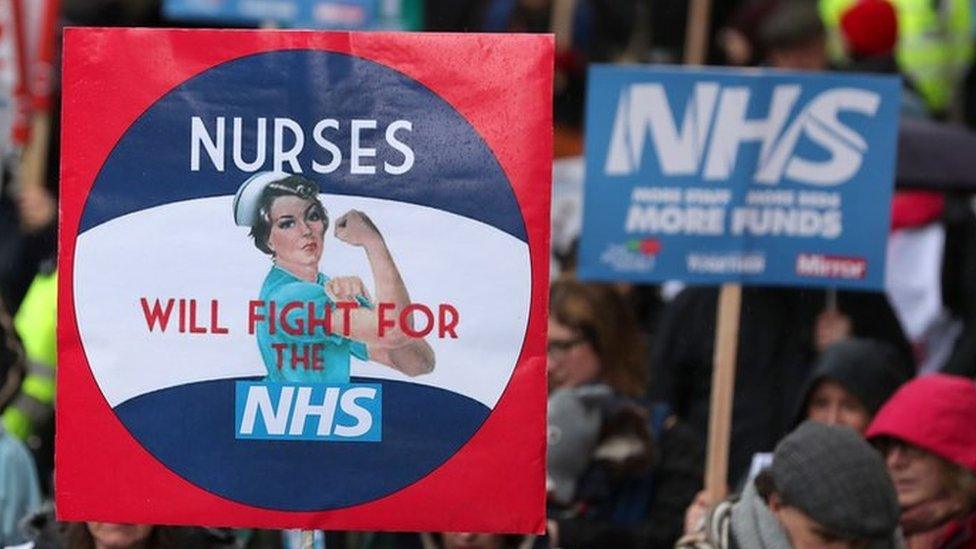
- Published31 January 2017
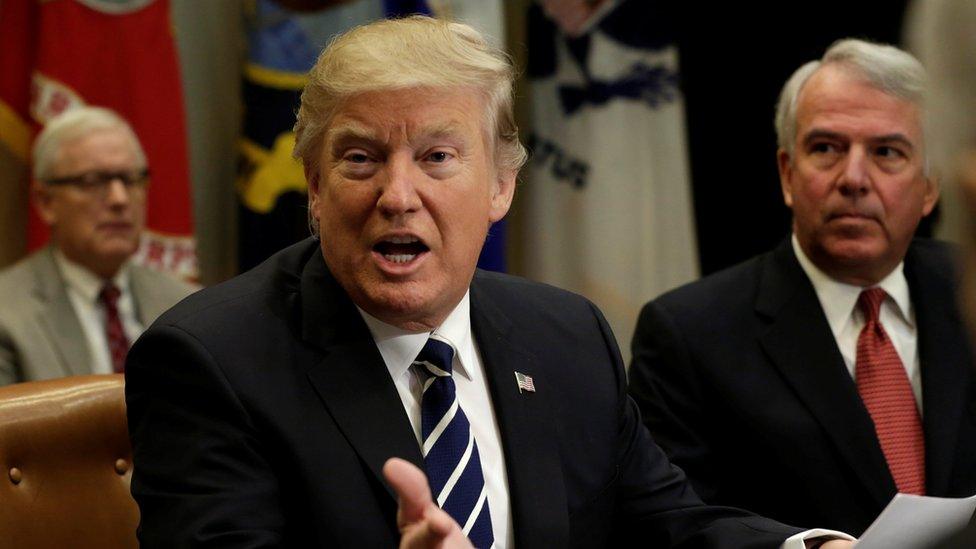
- Published29 December 2017
